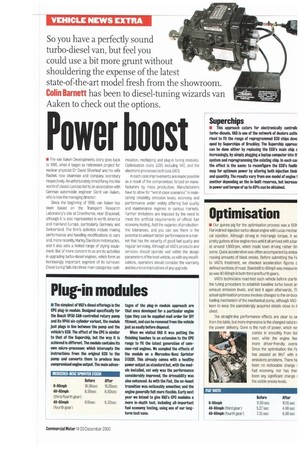Plug-in modules
Page 17

If you've noticed an error in this article please click here to report it so we can fix it.
• The simplest of VAD's diesel offerings is the CPC plug-in module. Designed specifically for the Bosch VP30 CAN-controlled rotary pump and its VP44 six-cylinder variant, the module just plugs in line between the pump and the vehicle's ECU. The effect of the CPC is similar to that of the Superchip, but the way it is achieved is different. The module contains its own micro-processor, which intercepts the instructions from the original ECU to the pump and converts them to produce less compromised engine output. The main advan tages of the plug-in module approach are that once developed for a particular engine type they can be supplied mail order for DIY fitment, and can be removed from the vehicle just as easily before disposal.
When we visited VAD it was putting the finishing touches to an extension to the CPC range to fit the latest generation of common-rail engines. We sampled the effects of the module on a Mercedes-Benz Sprinter 313CDL This already comes with a healthy power output as standard but, with the module installed, not only was the performance considerably improved, the driveability was also enhanced. As with the Fiat, the on-boost transition was noticeably smoother, and the engine generally felt more flexible. Early next year we intend to give VAD's CPC modules a more in-depth test, including all-important fuel economy testing, using one of our longterm test vans.




































































































